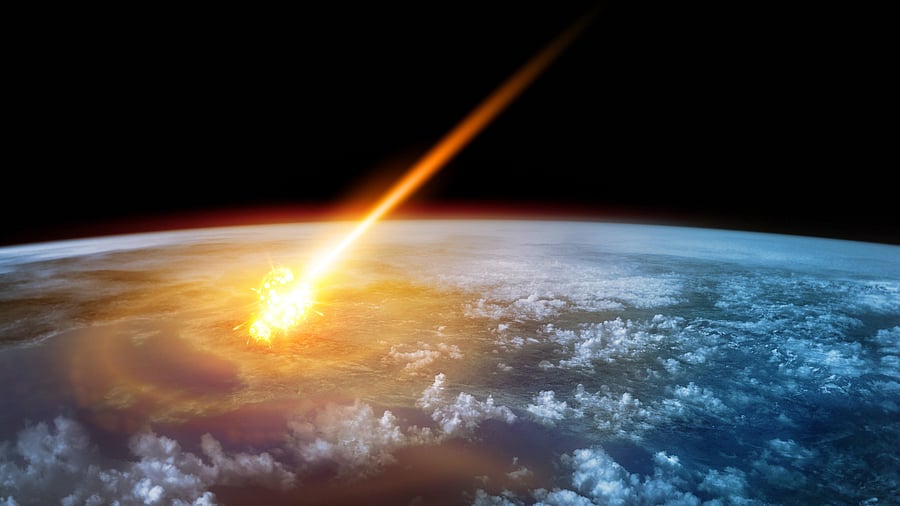
Illustration depicting the collision of an asteroid with Earth.
Credit: iStock Photo
Since its discovery, asteroid 2024 YR4 has been making the headlines owing to its projected risk to colliding with the Earth roughly seven years from now, on December 22, 2032.
Measuring 40-100 metres wide, 2024 YR4 will most certainly zoom past the Earth at a very close distance, but what has people alarmed is the probability of a collision, which currently stands at 2.2 per cent.
While that's a small number in absolute terms, it does indicate significant risk as far as planetary safety is concerned.
How are asteroid threats assessed?
Beyond probabilities, the threat posed by asteroids to the Earth is measured on the 11-point Torino scale.
For the uninitiated, Torino scale ratings in the range of 8-10 indicate certain collisions, 5-7 indicate threatening but uncertain encounters, 2-4 indicate potential encounters that warrant monitoring. A rating of 1, meanwhile, indicate a routine discovery that is expected to fly past the Earth, while a rating of 0 indicates no possibility of collision.
While all objects on NASA's asteroid risk list currently carry a Torino scale rating of 0, 2024 YR4 currently has a rating of 3, which indicates that the object warrants close monitoring by space agencies.
The Torino scale.
Credit: NASA
Where could asteroid 2024 YR4 strike?
According to a report by WIRED, in the event the asteroid does impact our planet, scientists have charted out a 'risk corridor', highlighting a band of territory on Earth where the object could strike.
This risk corridor stretches a vast distance, from northern South America, across the Pacific Ocean, to southern Asia, the Arabian Sea, and Africa.
Notably, India falls within this 'risk corridor', as do various other countries, including Pakistan, Bangladesh, Venezuela, Colombia, Ecuador, Sudan, Nigeria, and Ethiopia.
What kind of damage could 2024 YR4 cause?
The destructive potential of asteroids depend on various parameters, including their composition, speed, and mass, among other things.
These parameters are usually determined by observation, and as such, are subject to change as and when more details about said asteroid emerge.
That being said, as per current observations, astronomers expect 2024 YR4 to have significant damage potential.
In the event of a collision, scientists think that 2024 YR4 would create an airburst that would be equivalent to nearly eight million tonnes of TNT or roughly 500 times the power of the atomic bomb that was dropped on Hiroshima at the end of World War II. Such an explosion is expected to affect an area of roughly 50-kilometre radius around the impact site.
What are our options if the asteroid is headed towards us?
Given the risk posed by a possible collision, the United Nations has already activated an emergency protocol for planetary protection.
Further, several planetary defence initiatives are in the works, including kinetic deflection, as demonstrated by the success of NASA's DART mission in 2023, which crashed into the asteroid Dimorphos and managed to successfully change its trajectory.
